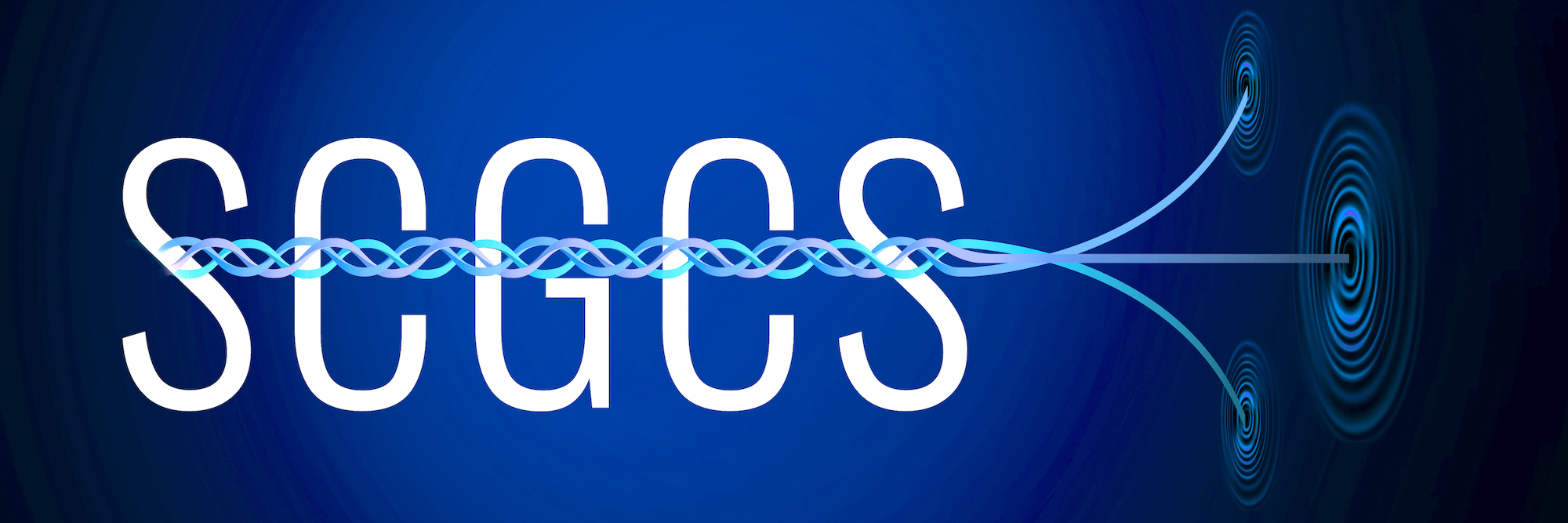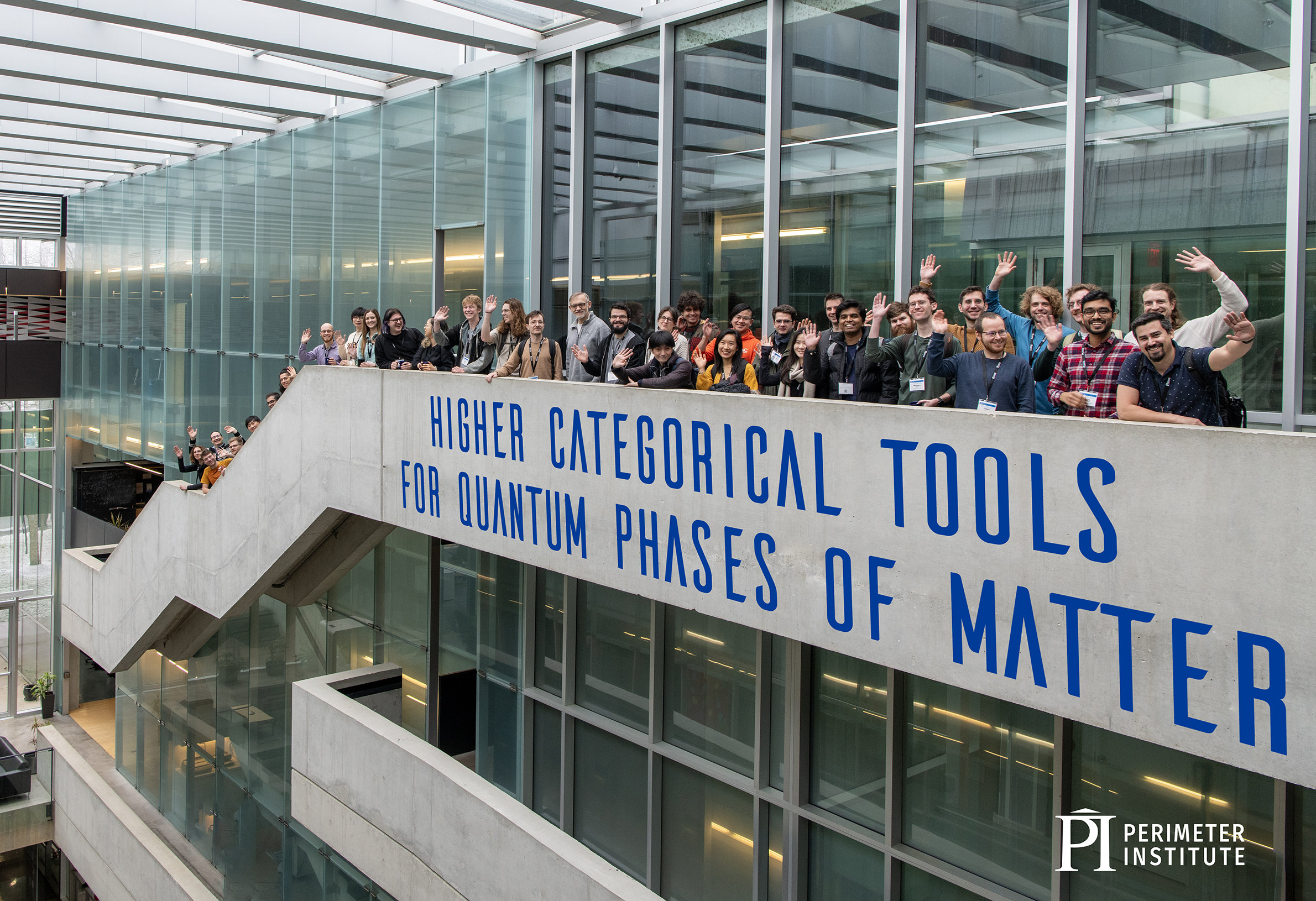Search results
Format results
-
-
Talk
-
-
-
-
-
-
-
-
Modelling the Nonlinear Power Spectrum with COLA Simulations
João Victor Silva Rebouças
-
-
Talk
-
Strong Gravity Lecture
William East Perimeter Institute for Theoretical Physics
-
Strong Gravity Lecture
William East Perimeter Institute for Theoretical Physics
-
Strong Gravity Lecture
William East Perimeter Institute for Theoretical Physics
-
Strong Gravity Lecture
William East Perimeter Institute for Theoretical Physics
-
Strong Gravity Lecture
William East Perimeter Institute for Theoretical Physics
-
Strong Gravity Lecture
William East Perimeter Institute for Theoretical Physics
-
Strong Gravity Lecture
William East Perimeter Institute for Theoretical Physics
-
Strong Gravity Lecture
William East Perimeter Institute for Theoretical Physics
-
-
Talk
-
Quantum Gravity Lecture
Aldo Riello Perimeter Institute for Theoretical Physics
-
Quantum Gravity Lecture
Aldo Riello Perimeter Institute for Theoretical Physics
-
Quantum Gravity Lecture
Aldo Riello Perimeter Institute for Theoretical Physics
-
Quantum Gravity Lecture
Aldo Riello Perimeter Institute for Theoretical Physics
-
Quantum Gravity Lecture
Aldo Riello Perimeter Institute for Theoretical Physics
-
Quantum Gravity Lecture
Aldo Riello Perimeter Institute for Theoretical Physics
-
Quantum Gravity Lecture
Aldo Riello Perimeter Institute for Theoretical Physics
-
Quantum Gravity Lecture
Aldo Riello Perimeter Institute for Theoretical Physics
-
-
Talk
-
String Theory Lecture
Davide Gaiotto Perimeter Institute for Theoretical Physics
-
String Theory Lecture
Davide Gaiotto Perimeter Institute for Theoretical Physics
-
String Theory Lecture
Davide Gaiotto Perimeter Institute for Theoretical Physics
-
String Theory Lecture
Davide Gaiotto Perimeter Institute for Theoretical Physics
-
String Theory Lecture
Davide Gaiotto Perimeter Institute for Theoretical Physics
-
String Theory Lecture
Davide Gaiotto Perimeter Institute for Theoretical Physics
-
String Theory Lecture
Davide Gaiotto Perimeter Institute for Theoretical Physics
-
String Theory Lecture
Davide Gaiotto Perimeter Institute for Theoretical Physics
-
-
Talk
-
Mathematical Physics Lecture
Kevin Costello Perimeter Institute for Theoretical Physics
-
Mathematical Physics Lecture
Kevin Costello Perimeter Institute for Theoretical Physics
-
Mathematical Physics Lecture
Kevin Costello Perimeter Institute for Theoretical Physics
-
Mathematical Physics Lecture
Kevin Costello Perimeter Institute for Theoretical Physics
-
Mathematical Physics Lecture
Kevin Costello Perimeter Institute for Theoretical Physics
-
Mathematical Physics Lecture
Kevin Costello Perimeter Institute for Theoretical Physics
-
Mathematical Physics Lecture
Kevin Costello Perimeter Institute for Theoretical Physics
-
Mathematical Physics Lecture
Kevin Costello Perimeter Institute for Theoretical Physics
-
-
Talk
-
Machine Learning Lecture
Damian Pope Perimeter Institute for Theoretical Physics
-
-
Machine Learning Lecture
Mohamed Hibat Allah University of Waterloo
-
Machine Learning Lecture
Mohamed Hibat Allah University of Waterloo
-
Machine Learning Lecture
Mohamed Hibat Allah University of Waterloo
-
Machine Learning Lecture
Mohamed Hibat Allah University of Waterloo
-
Machine Learning Lecture
Mohamed Hibat Allah University of Waterloo
-
Machine Learning Lecture
Mohamed Hibat Allah University of Waterloo
-
-
Talk
-
-
Analogies between QFT and lattice systems
Anton Kapustin California Institute of Technology (Caltech) - Division of Physics Mathematics & Astronomy
-
Models of anyons with symmetry: a bulk-boundary correspondence
Fiona Burnell University of Minnesota
-
Twisted Tools for (Untwisted) Quantum Field Theory
Justin Kulp Stony Brook University
-
Quantum double models and Dijkgraaf-Witten theory with defects
Catherine Meusburger -
Topological sectors in quantum lattice models
Clement Delcamp Institut des Hautes Etudes Scientifiques (IHES)
-
Douglas-Reutter 4d TQFT as a generalised orbifold
Vincentas Mulevičius Vilnius University
-
Weak Hopf symmetric tensor networks
Andras Molnar University of Vienna
-
-
Talk
-
GPTs and the probabilistic foundations of quantum theory - Lecture
Alexander Wilce Susquehanna University
-
GPTs and the probabilistic foundations of quantum theory - Lecture
Alexander Wilce Susquehanna University
-
GPTs and the probabilistic foundations of quantum theory - Lecture
Alexander Wilce Susquehanna University
-
GPTs and the probabilistic foundations of quantum theory - Lecture
Alexander Wilce Susquehanna University
-
GPTs and the probabilistic foundations of quantum theory - Lecture
Alexander Wilce Susquehanna University
-
GPTs and the probabilistic foundations of quantum theory - Lecture
Alexander Wilce Susquehanna University
-
GPTs and the probabilistic foundations of quantum theory - Lecture
Alexander Wilce Susquehanna University
-
-
School for Advanced Topics in Particle Physics (SATPP): Selected Topics in Effective Field Theories
The aim of the SATPP is to provide exposure/training to postdoctoral fellows and advanced/mature theoretical particle physics students in the final years of their PhDs, who already have a fair amount of expertise in quantum field theory and topics in particle physics. The goal is not just to provide details of the spectrum of ideas/mechanisms but also to supply essential technical tools that will allow the young researchers to think about these critically and constructively. As a pilot for this school, this year we begin with “Selected Topics in Effective Field Theories (EFTs).” EFTs, which provide systematic ways of “describing” the physics of a scale using only the relevant degrees of freedom, have become essential tools for understanding our universe. From describing the unknown at the TeV scale or above, to understanding/calculating observables involving mesons, baryons. EFTs are increasingly turning out to be the appropriate language. In this edition, the school will span two we...
-
9th Indian Statistical Physics Community Meeting
This is an annual discussion meeting of the Indian statistical physics community attended by scientists, postdoctoral fellows and graduate students, from across the country, working in the broad area of statistical physics.This meeting will be the 9th in the series. The following list of topics, that are covered in STATPHYS meetings of the International Union of Pure and Applied Physics, will be covered in this discussion meeting.General and mathematical aspectsRigorous results, exact solutions, probability theory, stochastic field theory, phase transitions and critical phenomena at equilibrium, information theory, optimization, etc.Out-of-equilibrium aspectsDriven systems, transport theory, relaxation and response dynamics, random processes, anomalous diffusion, fluctuation theorems, large deviations, out-of-equilibrium phase transitions, etc.Quantum fluids and condensed matterStrongly correlated electrons, cold atoms, graphene, mesoscopic quantum phenomena, fractional quantum Hall ef...
-
APS/SAIFR Satellite April Meeting 2024
APS/SAIFR Satellite April Meeting 2024
-
9th Indian Statistical Physics Community Meeting
This is an annual discussion meeting of the Indian statistical physics community attended by scientists, postdoctoral fellows and graduate students, from across the country, working in the broad area of statistical physics.This meeting will be the 9th in the series. The following list of topics, that are covered in STATPHYS meetings of the International Union of Pure and Applied Physics, will be covered in this discussion meeting.General and mathematical aspectsRigorous results, exact solutions, probability theory, stochastic field theory, phase transitions and critical phenomena at equilibrium, information theory, optimization, etc.Out-of-equilibrium aspectsDriven systems, transport theory, relaxation and response dynamics, random processes, anomalous diffusion, fluctuation theorems, large deviations, out-of-equilibrium phase transitions, etc.Quantum fluids and condensed matterStrongly correlated electrons, cold atoms, graphene, mesoscopic quantum phenomena, fractional quantum Hall ef...
-
Strong Gravity 2023/24
This course will introduce some advanced topics in general relativity related to describing gravity in the strong field and dynamical regime. Topics covered include properties of spinning black holes, black hole thermodynamics and energy extraction, how to define horizons in a dynamical setting, formulations of the Einstein equations as constraint and evolution equations, and gravitational waves and how they are sourced. -
Quantum Gravity 2023/24
The course centers on an in-depth study of the symmetry structure of General Relativity and how this is intimately related to its dynamics and to the challenges posed to its quantization. To achieve this understanding, we will introduce a host of concepts and techniques, broadly (and loosely) known under the name of “Covariant Phase Space Method”. This provides a different perspective on GR’s physics, a perspective in which phase space, rather than spacetime, is front and center. We will apply these ideas and techniques to discuss the so-called Problem of Time, Wald's approach to black hole entropy as a Noether charge, and the relationship between Dirac's Hypersurface Deformation Algebra and GR's symmetries and dynamics. We will also discuss the problem of detecting single gravitons as well as crucial analogies and differences between a quantum electromagnetic and gravitational field. Lecture notes specific for the course will be provided. -
String Theory 2023/24
The course covers the basics of String Theory: bosonic strings, D-branes, a bit of superstrings.
-
Mathematical Physics 2023/24
We will discuss mathematical aspects of classical and quantum field theory, including topics such as: symplectic manifolds and the phase space, symplectic reduction, geometric quantization, Chern-Simons theory, and others. -
Machine Learning 2023/24
Machine learning has become a very valuable toolbox for scientists including physicists. In this course, we will learn the basics of machine learning with an emphasis on applications for many-body physics. At the end of this course, you will be equipped with the necessary and preliminary tools for starting your own machine learning projects. -
Higher Categorical Tools for Quantum Phases of Matter
Quantum phases have become a staple of modern physics, thanks to their appearance in fields as diverse as condensed matter physics, quantum field theory, quantum information processing, and topology. The description of quantum phases of matter requires novel mathematical tools that lie beyond the old symmetry breaking perspective on phases. Techniques from topological field theory, homotopy theory, and (higher) category theory show great potential for advancing our understanding of the characterization and classification of quantum phases. The goal of this workshop is to bring together experts from across mathematics and physics to discuss recent breakthroughs in these mathematical tools and their application to physical problems.
Scientific Organizers
Lukas Mueller
Alex Turzillo
Davide Gaiotto
Sponsored in part by the Simons Collaboration on Global Categorical Symmetries

-
GPTs and the probabilistic foundations of quantum theory - mini-course
Classical probability theory makes the (mostly, tacit) assumption that any two random experiments can be performed jointly. This assumption seems to fail in quantum theory. A rapidly growing literature seeks to understand QM by placing it in a much broader mathematical landscape of ``generalized probabilistic theories", or GPTs, in which incompatible experiments are permitted. Among other things, this effort has led to (i) a better appreciation that many "characteristically quantum" phenomena (e.g., entanglement) are in fact generic to non-classical probabilistic theories, (ii) a suite of reconstructions of (mostly, finite-dimensional) QM from small packages of assumptions of a probabilistic or operational nature, and (iii) a clearer view of the options available for generalizing QM. This course will offer a survey of this literature, starting from scratch and concluding with a discussion of recent developments.
Mathematical prerequisites: finite-dimensional linear algebra, ideally including tensor products and duality, plus some exposure to category theory (though I will briefly review this material as needed).
Scheduling note: There will be 5 lectures from March 12-26, then a gap of two weeks before the final 2 lectures held April 16 & 18.
Format: In-person only; lectures will be recorded for PIRSA but not live on Zoom.
-
Theoretical approaches in cancer progression and treatment
From the ominous conclusion “there is no treatment” mentioned in the ancient Egyptian Edwyn Smith papyrus, to a remarkable recent clinical trial on rectal cancer patients using dostarlimab – where all 12 enrolled patients achieved complete remission with no recurrence for up to 25 months of follow up, our understanding of cancer and its treatment has progressed immensely over the years. Yet, the majority of cancer types remain untreatable due to eventual development of drug resistance and metastasis, and newer approaches to understanding the fundamental principles of cancer are much needed. With the advent of advanced sequencing and imaging techniques and ever-increasing resolution and throughput of current experimental technologies, mathematical and computational approaches in cancer are now witnessing a revolution. There is a rapidly increasing effort to use theoretical tools as orthogonal approaches to understand and control the evolution of this disease. Recent mathematical modelin...

